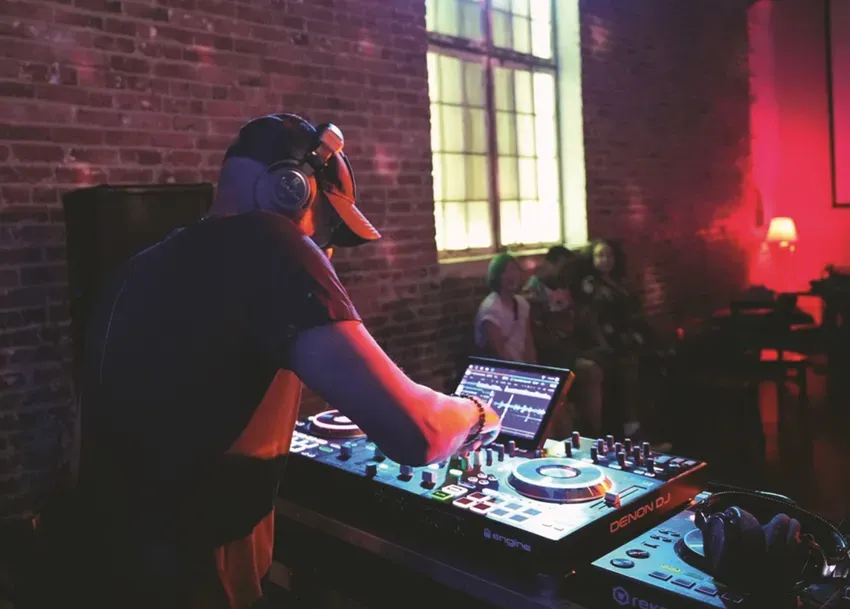There was a time when Friday nights meant heading straight to Manray, a bustling Capitol Hill video bar. Capito Hill is Seattle's "Gayborhood," the rainbow-studded heart and soul of the city's LGBTQ+ life, a place where everyone is welcome – at least on the surface. These days, I don't hit the clubs as often as I used to. As a Gay Black man, my journey through Seattle's LGBTQ+ scene has been a mixed bag of vibrant nights and stark realizations.
Lately the scene has started to feel more like a rerun than a live show. Bars that once played top 40 hits now echo with the same house music, night after night. The diversity in music has faded, replaced by a monotony that reflects the DJ booths – predominantly white, predominantly male. The lineups and promotional flyers scream sameness, and it's glaringly obvious to those of us who crave something different.
In this so-called progressive city, Black DJs are often sidelined. Despite their skills, they're frequently overlooked by Capitol Hill clubs and promoters in favor of less experienced white DJs, even during major events like Pride.
Contrast this with my experiences in places like West Hollywood (WeHo). There, Black DJs are a common sight, adding layers of diversity and vibrancy to the nightlife. It's a stark difference that leaves me questioning Seattle's so-called inclusivity.
Aided by the insights of local Black DJs, I want to shine a light on the lack of diversity and explore potential solutions. Seattle's Gay scene doesn't need just a revival; it needs a revolution, grounded in true diversity and inclusion.
So let's dive into the rich history of house music, traverse the evolution of the Seattle Gay scene, and hear directly from the Black DJs who've been in the trenches. Together, we can envision a nightlife that celebrates all voices and offers a truly inclusive experience.
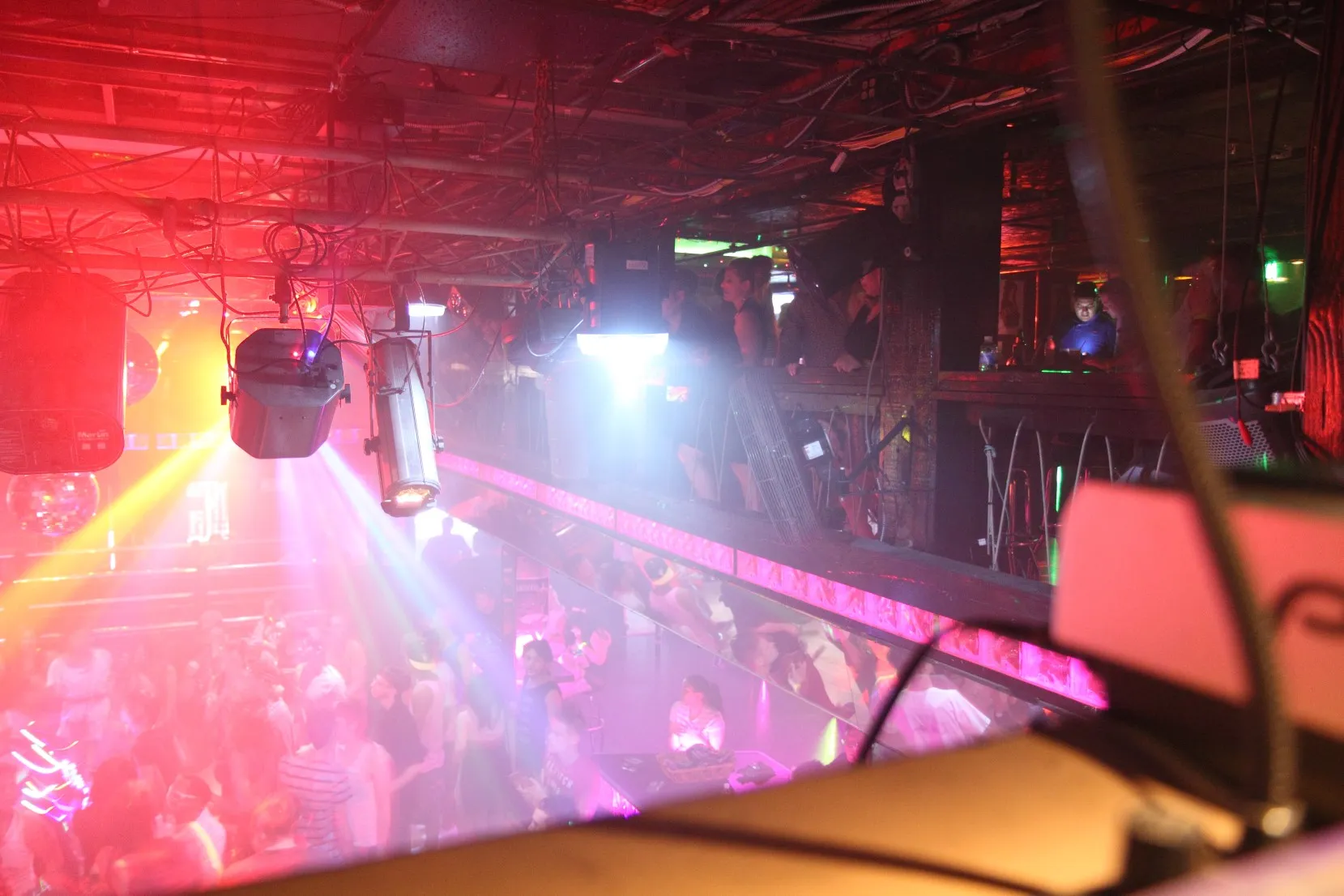
History of Seattle gay scene
Seattle's LGBTQ+ nightlife scene revolves around Capitol Hill, and Capitol Hill's history is entangled with that of the Central District, a neighborhood shaped by the harsh lines of redlining and racial covenants that confined African Americans to specific areas. The Central District wasn't just a neighborhood; it was a community, vibrant and resilient despite the systemic barriers. As the mid-20th century rolled in, the Central District became predominantly Black. Though forged in adversity, the community was a testament to the strength and unity of its residents.
In the 1970s, Capitol Hill was a diverse and evolving neighborhood characterized by a mix of ethnic groups, including African Americans, Asian Americans, European Americans, and Native Americans. It emerged as a hub for the LGBTQ+ community, with many individuals and organizations establishing their presence, shaping the neighborhood's identity. The area was economically diverse, featuring a range of housing options from single-family homes to communal living spaces, reflecting its working-class and middle-class residents.
Capitol Hill also became a center for countercultural movements, attracting artists, musicians, and activists who contributed to its vibrant and progressive reputation. Urban development during this time brought new housing and commercial spaces, further shaping the neighborhood's modern character.
In the 1980s, Capitol Hill, already known for its artistic and bohemian vibe, started to transform into a haven for the LGBTQ+ community. This period wasn't just about finding a safe space; it was about carving out a piece of the city where people could be unapologetically themselves. Iconic venues like Neighbors Nightclub opened their doors, offering more than just a place to dance – these were sanctuaries where self-expression and acceptance reigned supreme.
Fast forward to the 1990s, and the scene was buzzing with a new energy. The AIDS crisis brought the community together in ways previously unimaginable, with organizations like the Seattle AIDS Support Group providing critical support. The era of activism wasn't just about survival; it was about visibility and pride. More bars and clubs popped up, each one adding a unique flavor to the melting pot that is Capitol Hill. Venues like R-Place and the Cuff Complex become the beating hearts of the neighborhood, pulsating with the rhythms of house, pop, and everything in between. R-Place, in particular, was a sanctuary for people of color, a place where the music felt like home.
The new millennium arrived, and with it, the tech boom. Capitol Hill's character started to shift as property values soared and a new wave of residents moved in. The Gay scene expanded, but not without losing some of its original grit. The annual Pride Parade grew larger, reflecting broader acceptance and integration into mainstream culture. Yet gentrification was displacing longtime residents and altering the neighborhood's unique cultural tapestry. Despite this, new venues emerged, and the community adapted, ever resilient.
The 2010s were a rollercoaster of progress and setbacks. Legal victories like the legalization of same-sex marriage in Washington State in 2012 were celebrated with unparalleled joy. Pride events continued to swell in size, a vibrant testament to the community's enduring spirit. But gentrification's shadow loomed ever larger, making it increasingly difficult for many LGBTQ+ individuals to afford living on Capitol Hill. The neighborhood's cultural shift led to a sense of loss among some longtime residents, who lamented that the unique character of Capitol Hill was being diluted.
Then came 2020, and the world as we knew it ground to a halt. The early years of the COVID-19 pandemic shuttered bars and clubs, casting a pall over the vibrant nightlife that had defined Capitol Hill for decades.
Seattle's Gay nightlife scene used to be a tapestry of diverse sounds and faces; today it feels like a cookie-cutter replica of itself. The recovery from the pandemic shutdowns has only amplified this trend, as bars reopened with the same old faces behind the turntables, spinning the same old playlists. But real estate prices and pandemic lockdowns are not the whole story. How has house music – a genre created by Black people – become a staple of repetitive soundscapes curated by white DJs in Seattle?
History of house music
In the late 1970s, disco was king. Clubs pulsated with infectious beats, and dance floors were packed with revelers lost in the rhythm. But like all trends, disco saw its star fade. Enter house music, a genre born from the ashes of disco's decline and forged in the underground clubs of Chicago. It was in these dimly lit, sweaty spaces that pioneers like Black DJ Frankie Knuckles, often hailed as the "Godfather of House," began to experiment with drum machines and synthesizers, creating a sound that was raw, hypnotic, and undeniably infectious.
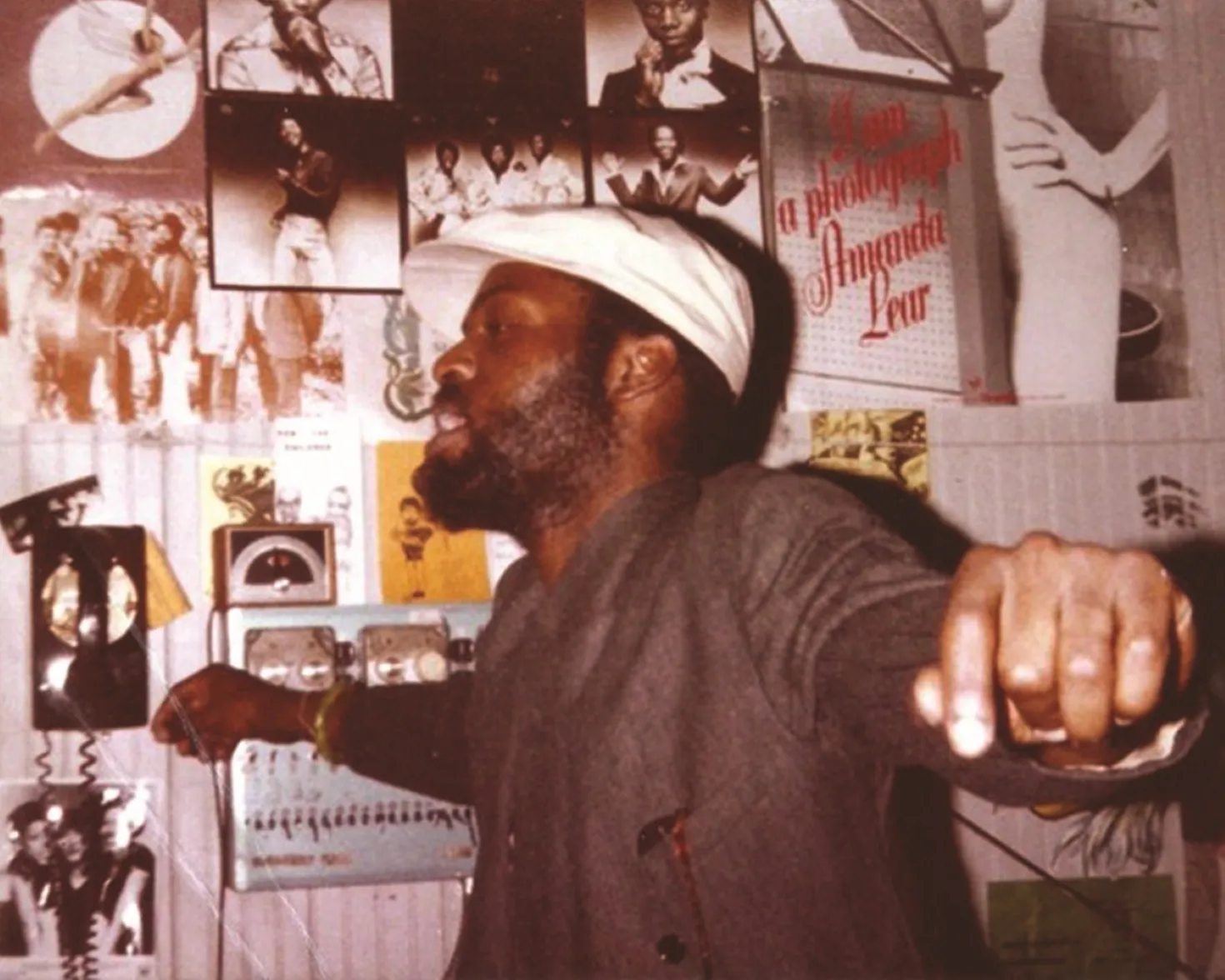
Frankie Knuckles laid down the blueprint for house music while spinning at the Warehouse. The club, a sanctuary for Chicago's marginalized communities, especially LGBTQ+ people of color, became the crucible that molded this new genre. House music was more than just a beat; it was a cultural revolution, a unifying force that brought people together on the dance floor. Tracks like "Your Love" by Frankie Knuckles and Jamie Principle became anthems, their repetitive, hypnotic beats and soulful vocals creating an immersive experience that kept dancers moving until dawn.
In the 1980s, house music spread like wildfire, jumping from Chicago to New York and eventually across the Atlantic to Europe. Artists like Black DJ Larry Levan at the Paradise Garage in New York, and the burgeoning UK rave scene, took the genre to new heights. The music evolved, but its core remained the same: a four-on-the-floor beat, synthesized basslines, and a commitment to making people dance.
House music was a testament to the power of innovation in adversity. Born from the rejection of mainstream disco, it became a global phenomenon, influencing countless other genres and maintaining a presence in clubs worldwide. It was a genre that celebrated life, love, and the freedom to be whoever you wanted to be, on and off the dance floor.
Today in Seattle, this Black art form that once played to diverse crowds now often plays in a white-oriented scene where Black DJs are overlooked. As one Black DJ laments, house music in Seattle is not being spun by "the very people that created the music." This shift has led to house music being used as mere sonic wallpaper, stripped of its original imaginative and revolutionary spirit.
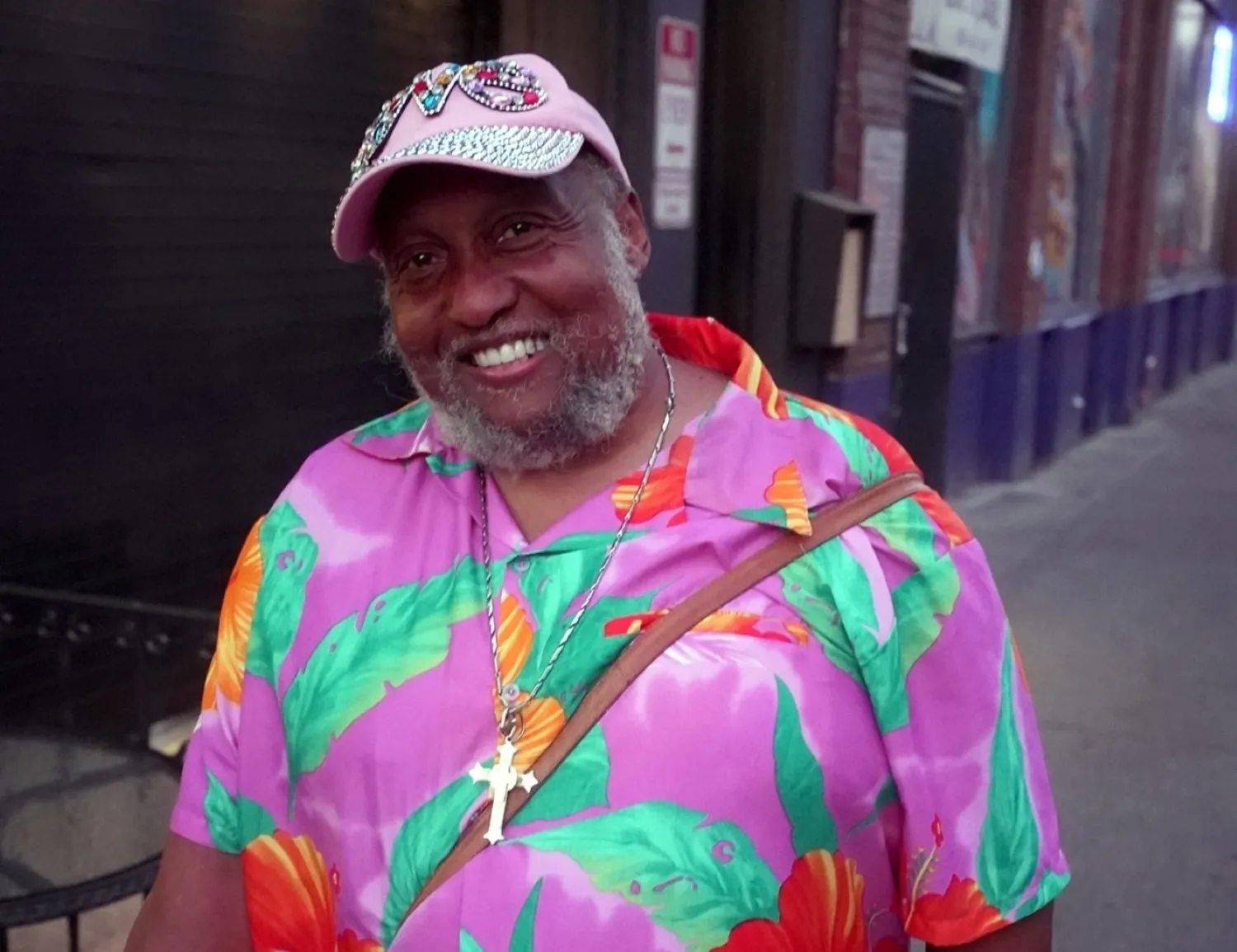
Black DJs of Seattle weigh in
To understand this issue better, I reached out to Black DJs in Seattle, friends of mine who have shared similar experiences. Due to concerns about professional repercussions, most of these DJs chose to remain anonymous. Their perspectives reveal a deep-seated frustration and highlight the systemic barriers they face in Seattle music scene.
One DJ describes the Seattle experience as being "lost until you are found," emphasizing the fleeting nature of recognition and the struggle to maintain visibility. They note, "Being a Black DJ in Seattle is a challenge. You're known by some and loved by some but not known by many due to the lack of opportunities. You have to truly build a brand and stick to it. You're either lucky or you're lost in the shuffle of hopefuls. As years pass, you can be forgotten as the attendees and music pivots."
Another DJ critiques the post-COVID regression in diversity and inclusion efforts in Seattle, stating, "I have noticed that the DEI of the Seattle House community has taken multiple steps backward, almost to the point of segregation. Pre-COVID, there was a somewhat thriving community; I mean, not completely DEI, but headed in that direction. Post-COVID it seems the gatekeepers/promoters/club owners and their minions decided that this scene is only for them (non-POC artists) and not the very people that created the music that they love to listen to and play."
Riz Rollins, a successful enough Black DJ that he didn't mind going on record, also shared his views. Known as DJ Riz, he's a towering figure who has long been a fixture in Seattle's LGBTQ+ venues. His sets seamlessly transition from R&B and hip-hop to house and drum-and-bass, creating a sonic journey that defies categorization. In 1989, Chicago transplant Rollins started spinning records at Re-bar, a legendary Seattle venue, and since 1995, he has hosted the beloved "Expansions" show on KEXP. However, despite Rollins's prominence, lately I haven't seen him at any Gay venues during Pride or for club nights.
Asked for comment on the issue, Rollins responded to the effect that maybe I hadn't been looking in the right places. "I was booked throughout Pride, from the Deacons [the four-DJ group the Board of Deacons] at Black and Tan [in Rainier Valley] on Friday, the last Train Car [House Party] on Saturday, the [downtown Pride] parade, [and] Wildrose." Rollins had also been on the stage at Pride in the Park, and, billed as "the Good Reverend Riz Rollins," at Chop Suey's Flammable on the last day of Pride, Sunday, June 30. "The previous week I did two Juneteenth shows," added Rollins, "followed by a set at Cascadia [Cascadia NW Music & Arts Festival]."
Rollins also reminded me, "Don't forget the Queer women, DJs Yaddy [and] Hershe," pointing out that DJ Hershe had played at Pride in the Park and at Seattle Center's PrideFest.
However, Rollins did not disagree about the dearth of Black DJs in much of the Capitol Hill LGBTQ+ club scene, nor did he think his own success denied the barriers faced by other, less well-known Black DJs. "Your points are well taken," he wrote to me, adding that "the Wildrose is the only strictly Gay bar I worked [during Pride]. My point would be, I worked while others didn't, and Gay bars, not so much." Of some of the more male-focused Capitol Hill Gay bars, Rollins remarked, "I confess that I don't go into them joints and don't have much of a desire to. I'm good [with not going], but I recognize others aren't." He would be open to playing more of a role in the Capitol Hill scene: he has recently been offered a booking at CC's Seattle, and he says, "I think the Deacons could fit well at Massive or Union Bar (although [I've] never been to there)."
These voices collectively underscore a critical point: the battle for true inclusion and representation in Seattle's music scene is far from over. The systemic barriers that keep Black DJs on the periphery are deeply entrenched and require concerted, ongoing efforts to dismantle. The experiences shared here are a powerful testament to the resilience and determination of these artists and a call to action for all of us to do better.
Lack of diversity among promoters and club owners
Promoters and club owners hold significant power in shaping the music scene. They are the gatekeepers who decide which DJs get booked, which events get promoted, and ultimately, which sounds define the nightlife. Their decisions impact not only the music that gets played but also the cultural and social dynamics of the scene.
Seattle's lack of diversity among promoters and club owners has profound implications. These roles are predominantly occupied by white, cisgender men, which influences the opportunities available to DJs of color. This homogeneity at the top creates a narrow lens through which talent is evaluated and booked, often leading to a scene that lacks the richness and variety that diversity brings.
The role of promoters and club owners goes beyond just booking acts; they set the tone for the inclusivity (or lack thereof) within the nightlife community. When the people making these decisions come from similar backgrounds and perspectives, it can result in a music scene that feels exclusive rather than inclusive. This not only limits the diversity of the music played but also affects who feels welcome and represented in these spaces.
The lack of diversity in these positions can perpetuate a cycle where DJs of color struggle to break into the scene. Without diverse promoters and club owners who understand and value their unique contributions, these DJs often face barriers that their white counterparts do not. This can include fewer booking opportunities, less promotion, and a general lack of support and mentorship.
Moreover, the absence of diverse voices in decision-making roles means that the specific challenges faced by DJs of color may not be fully understood or addressed. For example, issues related to racial bias, cultural appropriation, and tokenism are less likely to be tackled if the leadership lacks personal experience with these problems.
The impact is not just felt by DJs but by the audience as well. A nightlife scene that fails to represent and celebrate diverse cultures risks alienating a significant portion of the community. It sends a message that certain voices and experiences are less valued, which can diminish the overall vibrancy and inclusiveness of the scene.
The Black DJs I interviewed off the record cautioned against taking half-hearted measures toward inclusion, which only leads to tokenism. One DJ explained, "As a minority DJ we don't want to be the token Black DJ on a lineup; we want to be respected by our peers and put on a lineup because of the skills we bring. The community, especially those in a position to make things happen, need to put the effort in when it comes to diversifying lineups and diversifying your circles and not just do it when everyone is complaining about it."
To create a truly inclusive and dynamic music scene, it is crucial to address the lack of diversity among promoters and club owners. This involves not only recognizing the problem but also taking concrete steps to diversify these roles. This could include mentorship programs for aspiring promoters and club owners from underrepresented backgrounds, conscious efforts to book a wider range of DJs, and creating platforms for diverse voices to be heard and respected.
In essence, the diversity of promoters and club owners is key to fostering a music scene that is reflective of the community's richness and variety. It opens up opportunities for DJs of color, enriches the cultural landscape, and ensures that the music scene remains vibrant, inclusive, and representative of all its members. By actively working towards a more diverse leadership, we can break down the barriers that have long hindered true equity in the music industry.
Benefits of including black DJs
Embracing diversity and inclusion within the Seattle music scene, particularly by ensuring that Black DJs have equal opportunities, brings significant benefits not just for the artists, but for the entire community.
Black DJs are the torchbearers of a rich musical heritage. House music itself was born from the creativity and struggles of Black artists. Including these DJs honors the origins of the genre and keeps its authentic spirit alive. Their presence brings a fresh perspective and innovative sounds to the decks, evolving the music scene and introducing new styles and genres that keep the audience engaged and excited.
Moreover, Black DJs often have deep roots within their communities. Their inclusion fosters a sense of belonging and representation, encouraging more diverse audiences to participate in the nightlife. This inclusivity strengthens community bonds and enhances the cultural fabric of the scene. It's more than just music; it's about creating a space where everyone feels seen and heard.
The economic impact cannot be understated. Diversity attracts a wider audience, leading to increased patronage and economic benefits for clubs and promoters. A vibrant, inclusive scene draws in more visitors and creates a dynamic, thriving nightlife. It's a win-win for everyone involved.
There is also a vast pool of untapped talent among Black DJs. By providing equal opportunities, the music scene can benefit from the skills and creativity of these artists, elevating the overall quality and diversity of performances. The richness and variety they bring can inspire new trends and keep the scene vibrant and relevant.
Inclusion is not just about fairness; it's about social justice and equity. Addressing historical and systemic inequalities in the music industry promotes fairness, respect, and recognition for artists who have long been marginalized. It's a step towards building a more just and equitable society.
Seattle's music scene thrives on diversity. By actively supporting and including Black DJs, we honor the music's roots, foster innovation, and build a more vibrant and inclusive community. It's not just about doing what's right; it's about enriching the cultural experience for everyone involved. Let's commit to creating spaces where all DJs, regardless of their background, feel valued and included. Only then can we truly honor the spirit of house music – a genre born from the need for a safe, inclusive space for all.
[Addition included from Motley's "Scary Halloween prices: Seattle's Queer nightlife goes "boo-jee!" on 9.30.2024].
Story impact
Back in July, I wrote about the lack of diversity in Seattle's LGBTQ+ nightlife in my piece, "Breaking the Monotony: A Call for True Inclusivity in Seattle's LGBTQ+ Nightlife." The response was eye-opening, and it seems like some people have taken note.
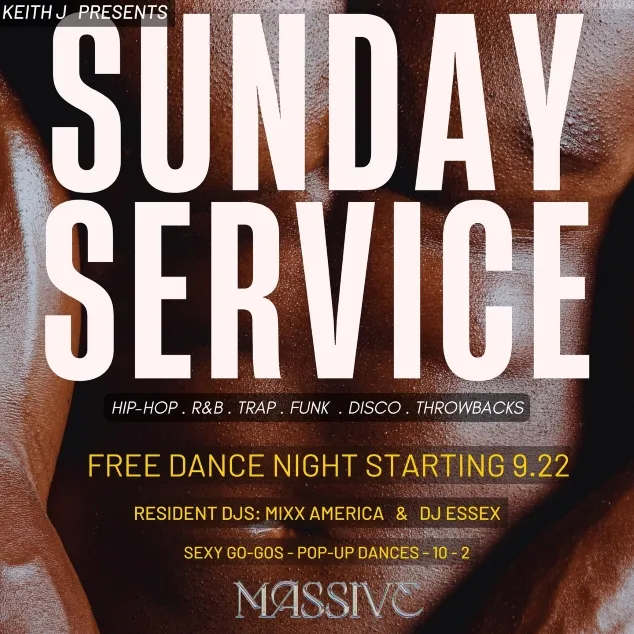
Massive, known for its techno parties, recently launched Sunday Service, a new event created by Black promoter Keith J. He promises more Black Queer representation on Capitol Hill, with a lineup featuring hip-hop, R&B, trap, funk, disco, and throwbacks - a welcome change. The event will also feature go-go dancers and pop-up performances every Sunday from 10 p.m. to 2 a.m.
In a chat with Keith J., he told me, "I read your piece about the death of diversity on Cap Hill right after I created this event, and it makes me so happy to be part of the change." It's moments like this that remind me why I write - because sometimes, stories spark real change.
I'll be checking out Sunday Service myself, and I'll report back on how this new night is making waves. If this is the future of Seattle's Queer nightlife, it's looking a whole lot more inclusive.
Support the Seattle Gay News: Celebrate 50 Years with Us!
As the third-oldest LGBTQIA+ newspaper in the United States, the Seattle Gay News (SGN) has been a vital independent source of news and entertainment for Seattle and the Pacific Northwest since 1974.
As we celebrate our 50th anniversary, we need your support to continue our mission.
Your contribution will ensure that SGN remains a beacon of truth and a virtual gathering place for community dialogue.
Help us keep printing and providing a platform for LGBTQIA+ voices.
How you can donate!
Using this Link
Text "SGN" to 53-555
Or Scan the QR code below!



